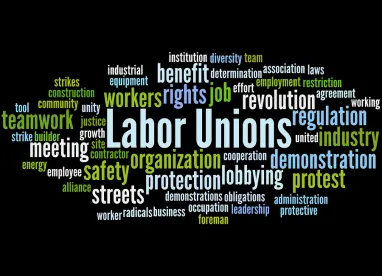Peter B. Robb, the General Counsel (GC) of the National Labor Relations Board (NLRB) has issued a Memorandum setting forth summaries of NLRB decisions about unionized employers’ duty to bargain in emergency situations. The Memorandum was issued in light of the many issues that have arisen about the rights and obligations of employers and labor organizations because of the coronavirus. According to the GC, those issues have arisen “in light of responsive measures taken by employers to contain the virus. Sometimes these measures have been taken out of prudence; other times they have been required by state, local or federal orders.” Memorandum GC 20-04 “Case Summaries Pertaining to the Duty to Bargain in Emergency Situations” (March 27, 2020).
Acknowledging that the virus presents “an unprecedented situation,” the Memorandum does not provide advice to unionized employers and unions. Instead, it is an attempt by the GC to educate them about NLRB decisions “in which the Board considered the duty to bargain during emergencies” that may be relevant to action they intend to take. The decisions involve both public emergencies and emergencies unique to a particular employer. The Memorandum covers only cases involving the duty to bargain. It does not deal with other NLRA issues that may arise in emergency situations.
The cases cited by the GC involved layoffs and/or facility closures arising out of, among other things, a flu prevention policy, weather emergencies, a sudden reduction in the employer’s business volume, materials (logs) shortages, and a credit line discontinuance. The decisions underscore that, in order to avoid a bargaining obligation, the employer must demonstrate that “economic exigencies compel[led] prompt action.” Bottom Line Enterprises, 302 NLRB 373, 374 (1991) and that the exception is limited to “extraordinary events which are an unforeseen occurrence, having a major economic effect requiring the company to take immediate action” RBE Electronics of S.D., 320 NLRB 80, 81 (1995). In some of the included decisions, even where the NLRB decided that the failure to bargain was lawful, it also found the employer had violated the law by not offering to bargain over the effects of the decision.






 />i
/>i

